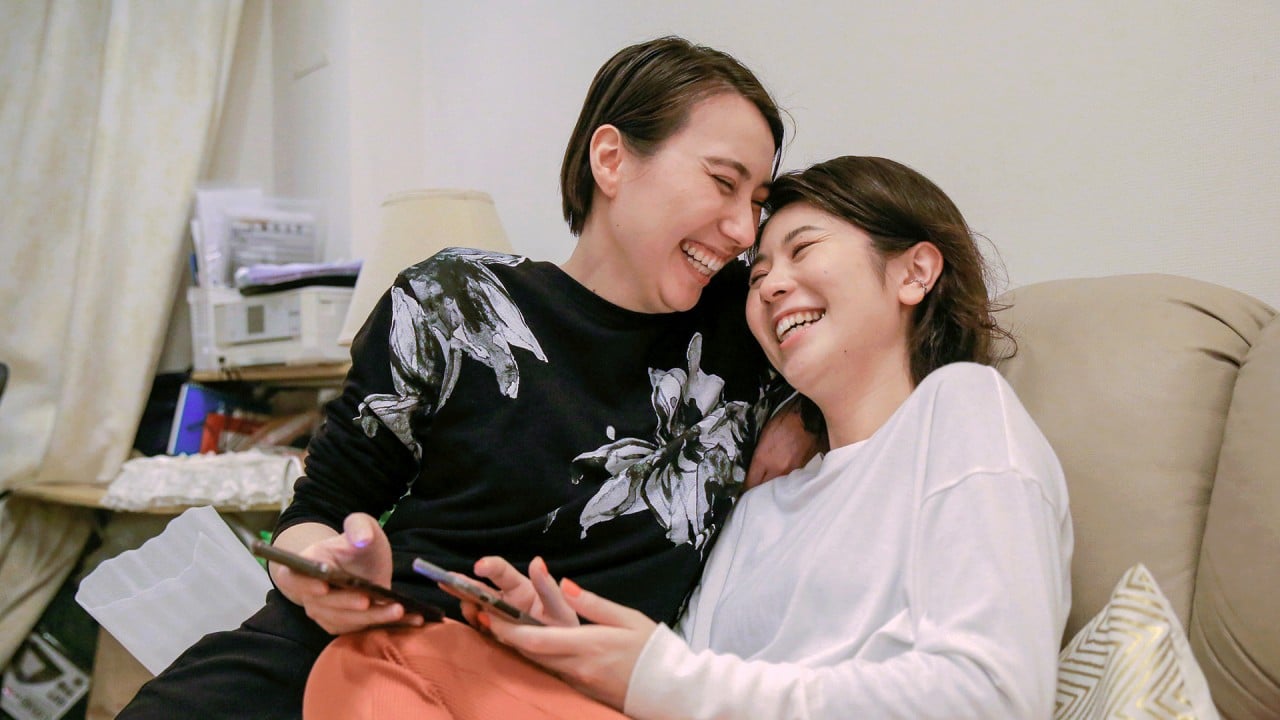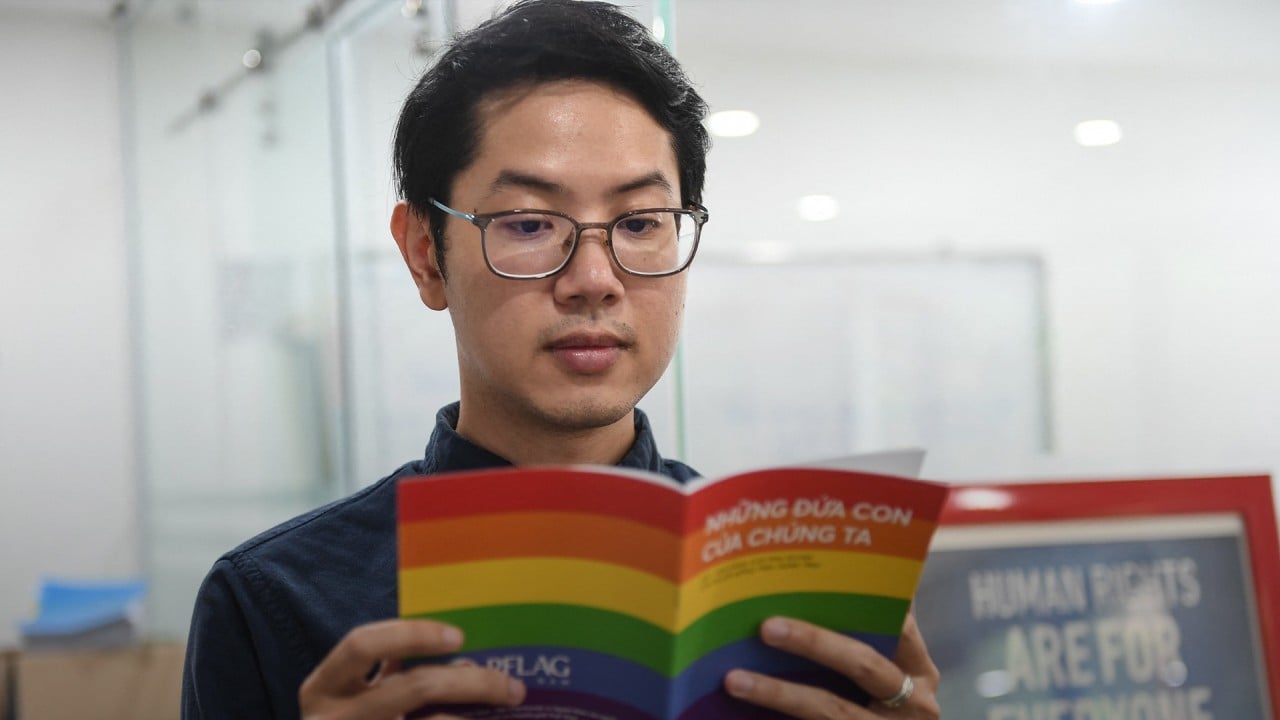
China targets LGBT student organisations on social media in new wave of repression
- Several high-profile Chinese LGBT student organisations found their WeChat accounts had been abruptly closed down overnight
- China’s government has become increasingly intolerant and homophobic towards LGBT people in recent years
The accounts included those from top universities such as the Sex-Gender Study Community of Renmin University, Peking University ColorsWorld and the Shanghai-based Fudan University Zhihe Society.
The account of an off-campus organisation, the Guangzhou-based Gay and Lesbian Campus Association in China (GLCAC), which cooperates with universities in the area, was also banned.
The pages of these accounts on WeChat now show a message saying: “According to internet regulations, we have screened all content and suspended this account”. The names of the accounts have been changed to “Unnamed”.

04:32
Japanese lesbian couple overjoyed as landmark ruling paves way for same-sex marriage
Some targeted organisations issued public statements addressing the forced closure. Wudaokou Purple, the student LGBT association from Tsinghua University, said the closure was surprising and swift, and it had not had time to establish a new platform yet.
“Our activities will not stop due to the closure, on the contrary, we hope we can set out together again, keep focusing on gender and society, embrace courage and love,” Fudan’s Zhihe said on Weibo.
GLCAC has turned down an interview request from the South China Morning Post, while multiple university LGBT associations did not respond at all. Tencent, which owns WeChat, did not respond to the Post’s interview request.
In the past, these groups worked extensively in advertising diversity and gender equality, holding seminars, dispelling homophobic rumours, speaking out on #MeToo, and celebrating Pride Month.

03:03
First openly gay candidate runs for Vietnam’s National Assembly
“In the mainland, universities rarely provide diversity education, and there is even homophobic content in teaching, and some LGBT students have experienced bullying,” she said. “These organisations are a place to provide shelter and support for confused LGBT students, their activities provide the role of gender equality education that’s missing.”
Furthermore, she said these organisations are a place where students start learning about social activism and civil society, which she believes may be a reason they are deemed as “dangerous”.
She has previously interned at GLCAC, and said it has helped organise on-campus seminars by members of the LGBT community, wrote brochures on these topics, and trained LGBT-friendly counsellors.
However, the closures have been hailed as a “victory” by some anti-LGBT voices who have become increasingly vocal in recent years. Tao Lina, a Shanghai-based vaccine expert, said on WeChat that foreign forces are trying to contain China “in the name of freedom, equality and love”, and that one method is to encourage the LGBT community.
“No matter how you view LGBTQI, when you see them at a Chinese campus, you wouldn’t applaud what Americans call ‘human rights’,” he wrote. “As a Chinese parent, most people would feel this is repellent and want authorities to ban them.”

03:11
Bangladesh’s first transgender television news presenter makes debut
He called the West’s progress in the inclusion of LGBT people “identity politics”, and the “same logic as extolling religion and indulgence with drug users”.
A Beijing official working in ideological affairs has also told the Post that “identity politics” will divide a country into different groups, and said China must “withstand the pressure” and “be alert”.
The Cyberspace Administration of China has been approached for comment.

.jpg?itok=H5_PTCSf&v=1700020945)